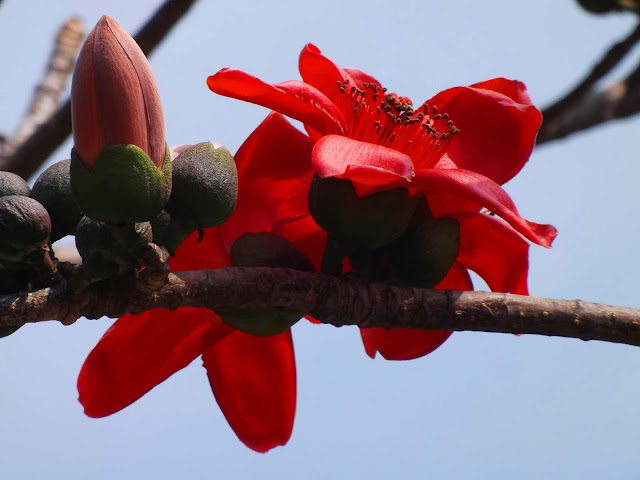Roti, Kuch or Jequirity, Abrus precatorius
Roti, Kuch or Jequirity (Abrus precatorius, family: Fabaceae) is a deciduous creeping woody herb. It grows naturally on fallow lands and beside canals and ponds. Nowadays it has been rare in Bangladesh. In epic Mahabharata and Indian classical poetry it is known as Gunja.
Leaves are compound; leaflets 10-20 cm on a rachis, opposite, tastes sweet. Blades are oblong, midrib clearly visible. Flowers are small, pinkish white. Flowers bloom in summer.
Fruits are bean-like. When the bean dried up, it burst. Seeds are round, brilliant red but have black mark at the top. All the seeds are almost of the same weight and shape. The extensive creeper is propagated by seeds.
Other names: Rotti, Rottika, Lalkuch, Roktokuch, Rokta, Shonakuri, Churamoni, Tamrika, Shangushtha, Gunja.
Fruit seeds are germicidal. These are used as anti-cancer medicines and laxatives. The seeds are also used in abortion. Roots and leaves are used in diarrhea, dysentery and skin diseases. it quenches thirst and causes perspiration. The leaf extract is used to cure cold and cough. Goldsmiths of the Indian subcontinent have been using seeds for measuring gold for thousands of years. The Santals women make beautiful jewelry by the seeds of the plant. In ancient subcontinental literature and folklore, the color of the seeds of the plant were compared to the best beauties. By the by, seeds of the beautiful creeper are poisonous.





798E19070C
ReplyDeletekiralık hacker
hacker arıyorum
tütün dünyası
-
-
CDBC5376ED
ReplyDeleteBeğeni Satın Al
Gerçek Takipçi
iG Takipçi
A0BA0886AA
ReplyDeleteGörüntülü Sex
Sanal Sex
Canlı Cam Show